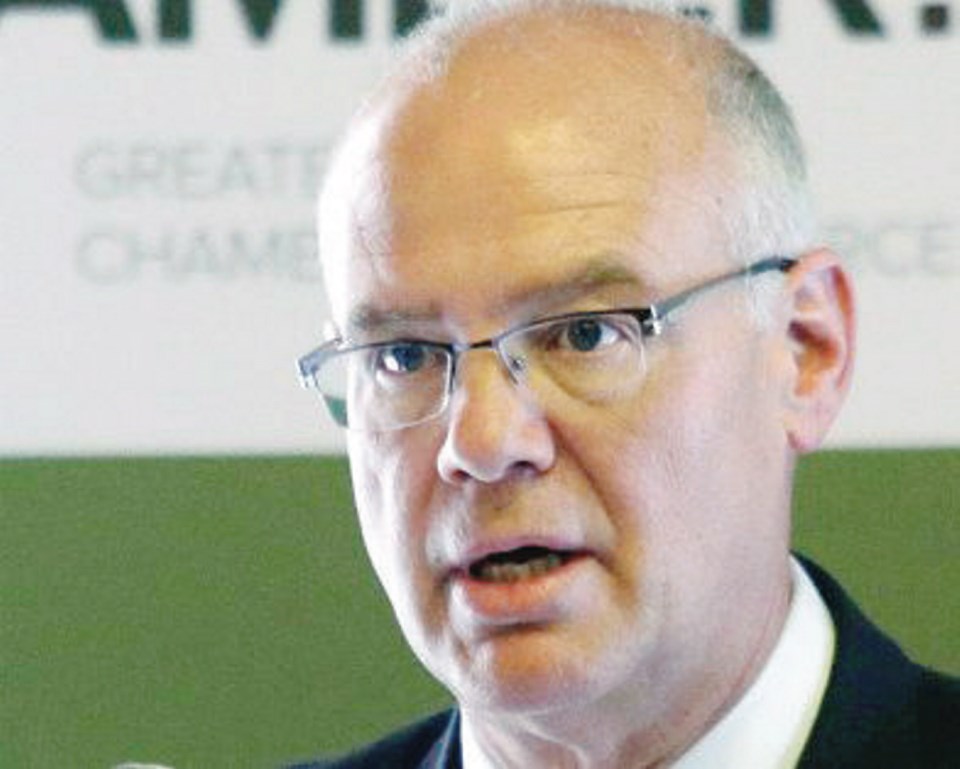Mental illness, addiction and homelessness-related problems are reaching crisis proportions in communities big and small, say B.C.’s mayors, who want the province to provide long-term-care beds for the severely mentally ill.
“The mayors’ caucus came out, to a person — unanimous — that it is the top priority for all communities to deal with this rising issue and crisis around mental health, addictions and homelessness,” Victoria Mayor Dean Fortin said from Whistler, where he is attending the Union of B.C. Municipalities convention.
The B.C. Mayors’ Caucus has called on the province to establish long-term residential beds for people with severe addiction and mental-health problems, and to increase such services at the community level to ensure all citizens have access to care.
B.C.’s last long-term residential mental-health facility was Coquitlam’s Riverview Hospital, which closed in 2012 after a 10-year phased shutdown, with a goal of moving toward in-community treatment. Instead of keeping patients in a single, centralized institution such as Riverview, the province’s goal was to move toward a more regionalized system, so patients could receive care and treatment closer to home.
But since it closed, there has been an explosion of mental-health and addiction problems that local communities have been left to grapple with.
Vancouver’s Downtown Eastside — the country’s poorest postal code — has become a magnet for the mentally ill and addicted.
“We just can’t release them to the Downtown Eastside of Vancouver and have the biggest outdoor mental-health facility with no supports,” Fortin said. “It’s just not working. It’s not working for the health-care system. It’s not working for our administration of justice.”
Both Vancouver and Victoria have adopted “housing first” policies to combat the problem, on the theory that it is more cost-effective and efficient to treat someone with mental-health or addiction problems when they are not homeless.
Fortin said it’s vindicating to see other communities taking the same housing-first approach.
“It’s fascinating to see that to a town, throughout British Columbia, they were starting to echo what has been heard from myself and [Vancouver Mayor] Gregor Robertson over the past four or five years,” he said.
“They’re all developing plans to end homelessness. They’re all implementing plans and recognizing that they need to have provincial co-ordination and we need to have provincial commitment.”
The mayors called for a framework to integrate health care, police, corrections and social services with supports for people with mental illness and addiction, Fortin said.
In a statement emailed from the Health Ministry, a spokesman said the provincial government has made it “a priority to build a comprehensive system of mental health and substance-use services across the province, making record investments totalling $1.3 billion annually.”
Ryan Jabs, the ministry’s director of communications, said: “Last year, the Ministry of Health developed a strategy to respond to public safety concerns regarding patients with severe mental illness and addiction issues. … The plan [released in November 2012] includes $20.25 million for the health authorities to help strengthen services for this high need population in 2014-15.
“Most of the money will go toward health authorities crafting solutions that meets their population’s unique needs; we are currently working with them on their plans.”



